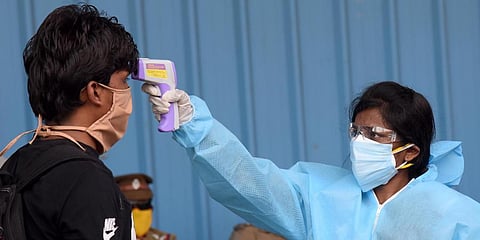

NEW DELHI: The overall percentage of people above 18 with antibodies against Covid-19 in India was 21.4%, the third national serosurvey by the ICMR to assess the true spread of coronavirus has shown.
For the survey carried out between December 17 to January 8, blood samples from 28,589 individuals and another group of 7,171 healthcare workers were tested from 70 districts across 21 states and UTs.
The findings also revealed that while seroprevalence among children aged 10-17 years was 25.3%, it was 25.7% among healthcare workers, announced ICMR Director General Balram Bhargava in a press briefing on Thursday.
Unlike earlier surveys that looked for antibodies against the viral nucleocapsid, the third survey also looked for spike protein antibodies. The overall figure of 21.7 seropositivities, shared by Bhargava, is based only on the results of spike protein antibodies and not the other one.
The survey, based on the combined results from both the tests has estimated the average infection prevalence at about 25%, a figure skipped in the briefing but may later get published in the detailed scientific paper.
"Amongst healthcare workers, seroprevalence was the highest overall with 25.7%. Statistically, it was not different between doctors, nurses, field staff, and paramedics, but it was highest among doctors and nurses with 26.6% as against the administrative staff which was 24.9%,” said ICMR DG.
He stressed that as the survey has shown still lower penetration of the virus in the population, a large proportion still remains vulnerable and therefore prevention is the key and vaccines are necessary.
Meanwhile, the findings suggested that urban slums reported the highest seroprevalence with 31.7% and were followed by urban non-slums (26.2%). The seropositivity, as expected, was the lowest in rural areas at 19.1%.
Also, 23.4 % of individuals above 60 years of age and those between 45-60 years showed evidence of past infection and the prevalence was the lowest --19.9% -- in those aged 18-44 years.
There were more women (22.7%) as compared to men (20.3%) who were found to have antibodies against the Covid-19 virus, the results say.
The survey was conducted in the same 700 villages or wards in 70 districts in 21 states selected during the first and second rounds of the national survey, in order to study the epidemic’s growth longitudinally over months.